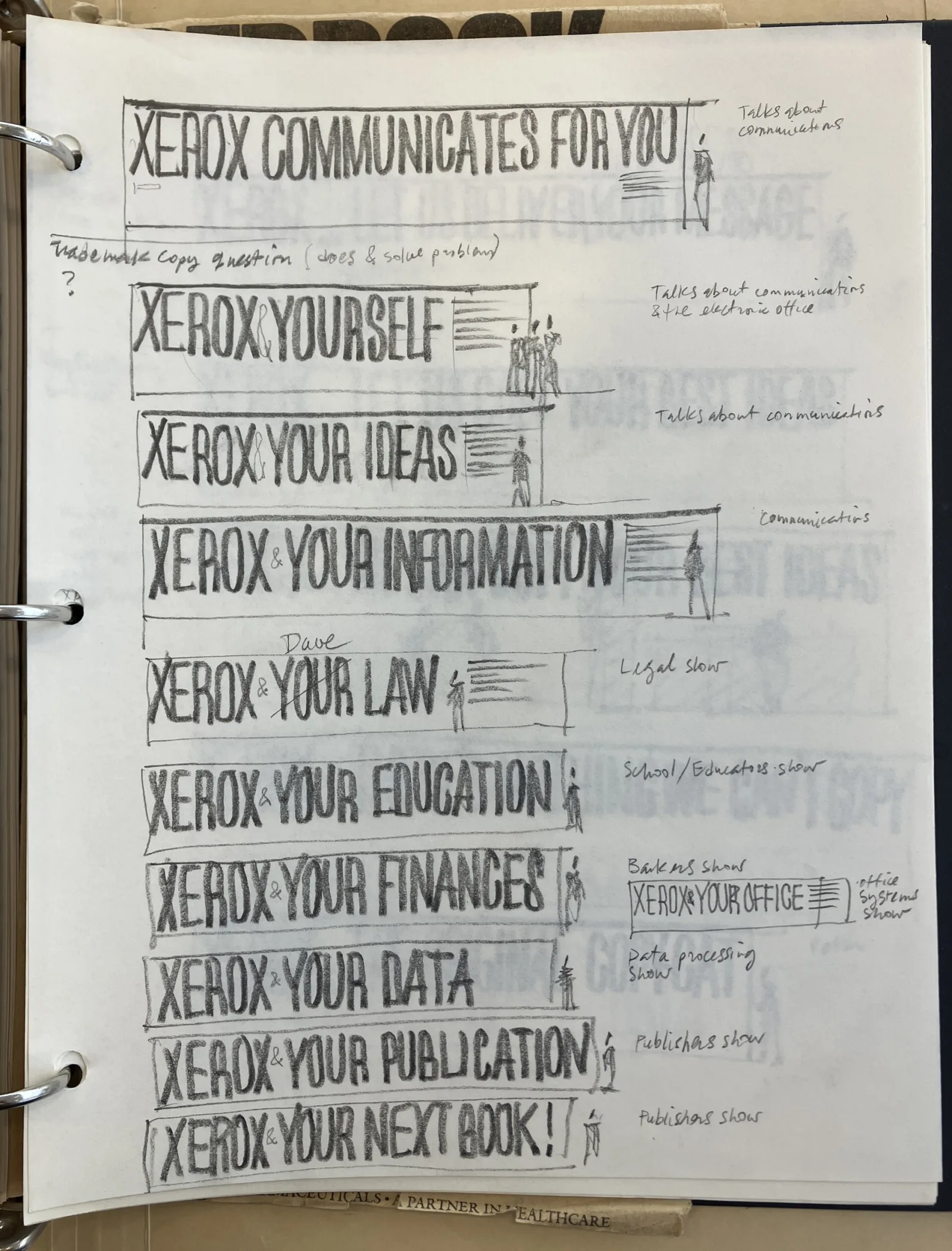Description
In the late 1970s, faced with rising competition from Japanese manufacturers and fears of a microchip led “paperless office,” the Xerox Corporation hired external design consultants to help redefine its office equipment business. This paper examines the “Integrated Design System” led by Jay Doblin of Delta Planning, showing how market segmentation drove a new customer-focused concept—Xerox [Benefit] You—that shifted attention from machines to their users: document handlers. By mapping markets (e.g., institutional, consumer) to products (e.g., photocopiers, typewriters etc.), competitors (e.g., IBM, Kodak), and customers (e.g., salespeople, lawyers etc.) through 1950s and 60s-behavioural science-inspired matrixes, pyramids, and charts, Delta Planning rendered Xerox’s external environment both visible and adaptable. Challenging the view of designers as passive agents of capitalism, this paper uncovers a history of their active role in shaping corporate strategy and traces a chapter in the larger story of how business culture came to adopt design thinking. It argues that amid shifting economic and technological conditions, these practitioners redefined design itself—from technology-driven to user-centered.
About the Speaker
Penelope Dean is Professor in the School of Architecture at the University of Illinois at Chicago. Her work on the intersections of design, architecture, and business culture has appeared in publications ranging from Harvard Design Magazine to Log. She is founding editor of Flat Out, an independent print magazine in part supported by the National Endowment for the Arts, the Graham Foundation for Advanced Studies in the Fine Arts, and UIC’s Office of the Vice Chancellor for Research. Dean was a Visiting Scholar at the Canadian Centre for Architecture at Montreal and a Faculty Fellow at UIC’s Institute for the Humanities. She is currently completing the book project Game Plans, which recounts the untold history of a group of Chicago-based designers who assimilated marketing theories into their practices between the mid-1950s and early-1980s.
Respondent
Eli Cook
About the History of Capitalism Seminar Series
The History of Capitalism Seminar provides a works-in-progress forum for work from scholars at all levels. Proposals may consider a variety of subjects, including the history of race and racism, gender and feminist studies, intellectual history, political history, legal history, business history, the history of finance, labor history, cultural history, urban history, and agricultural history. Elizabeth Tandy Shermer (Loyola University Chicago) and Andrew Hartman (Illinois State University) are the co-coordinators of the seminar.
Register
This event is free, but all participants must register in advance. Space is limited, so please do not request a paper unless you plan to attend.
Register and Request Paper